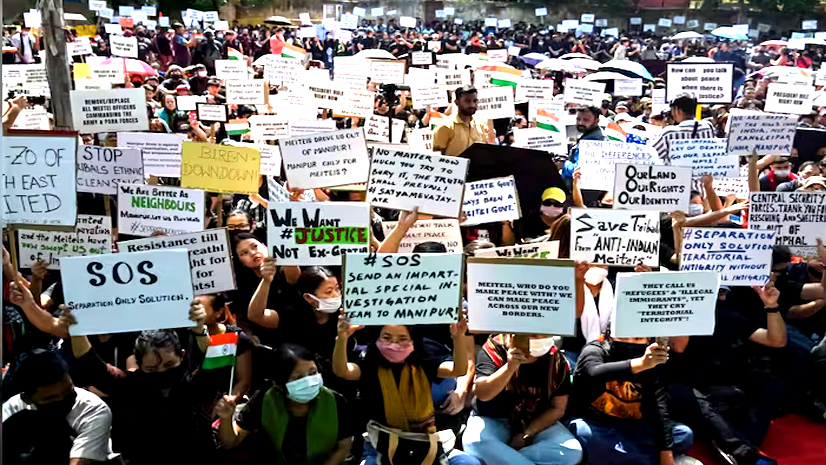
In a recent development that has stirred both political and social debates, over 1,000 Kuki community members from Manipur are reportedly to have sought refuge in Assam’s Karbi Anglong district. This claim has triggered a fresh controversy, with local leaders and organisations voicing concerns over its implications for the region.
Background of the Exodus
The Kukis, an indigenous ethnic group primarily inhabiting the northeastern states of India, have faced escalating tensions in Manipur in recent months. These tensions stem from ethnic clashes and longstanding disputes over land, identity, and political representation. As a result, many Kukis have fled their homes for safety and stability.
Karbi Anglong, a district in Assam known for its diverse tribal population, has become a destination for these displaced individuals. According to local sources, the recent influx has been substantial, with over 1,000 Kukis reportedly arriving in the region. The reasons for their migration include safety concerns, loss of livelihood, and the inability to return to their homes in Manipur due to the ongoing unrest.
Reactions and Controversies
The arrival of the Kukis has sparked mixed reactions among the residents of Karbi Anglong. While some communities have extended support and solidarity to the displaced families, others have expressed apprehension about the migration’s potential social and economic impact.
Local organisations and political leaders have raised concerns about the strain on resources and the possibility of altering the region’s demographic balance. Some have also questioned the government’s role in addressing the situation, calling for a clear policy on the settlement of refugees and internally displaced persons.
“We empathise with those who have fled their homes under difficult circumstances, but it is crucial to ensure that this does not lead to conflicts in Karbi Anglong,” said a representative of a local tribal organisation. “The government must intervene and provide a solution that is fair to both the displaced individuals and the host communities.”
Government’s Response
The Assam government has acknowledged the arrival of the Kukis and assured that measures are being taken to address the situation. Authorities have initiated relief efforts, including the provision of temporary shelters, food, and medical aid to the displaced families.
Critics counter that these actions lack long-term planning and are inadequate. “Transient respite is insufficient. A political expert stated that the administration must endeavor to find a long-term solution, which includes fostering inter-communal communication and tackling the underlying causes of the violence in Manipur.
Broader Implications
The migration of the Kukis to Karbi Anglong highlights the broader challenges of ethnic tensions and displacement in India’s northeast. The region, known for its ethnic diversity, has witnessed several such conflicts in the past, leading to mass migrations and socio-political upheavals.
Experts emphasise the need for a comprehensive approach to address these issues, including strengthening inter-community dialogue, implementing conflict resolution mechanisms, and ensuring equitable development across the region.
Conclusion
The arrival of over 1,000 Kukis from Manipur in Karbi Anglong underscores the urgent need for both state and central governments to address the root causes of displacement and provide effective solutions. While humanitarian assistance is vital, a long-term strategy to foster peace and stability in the northeast remains essential to prevent such crises in the future.
